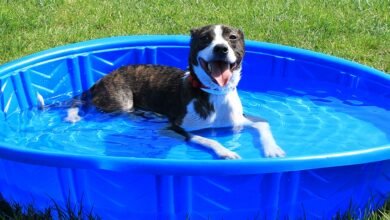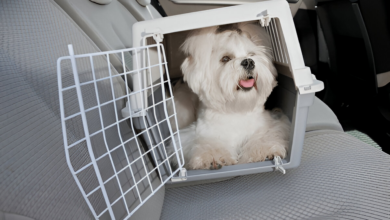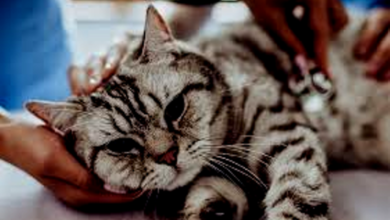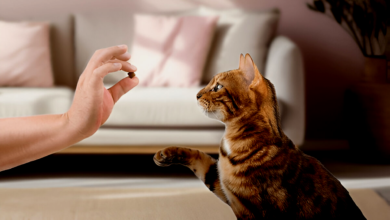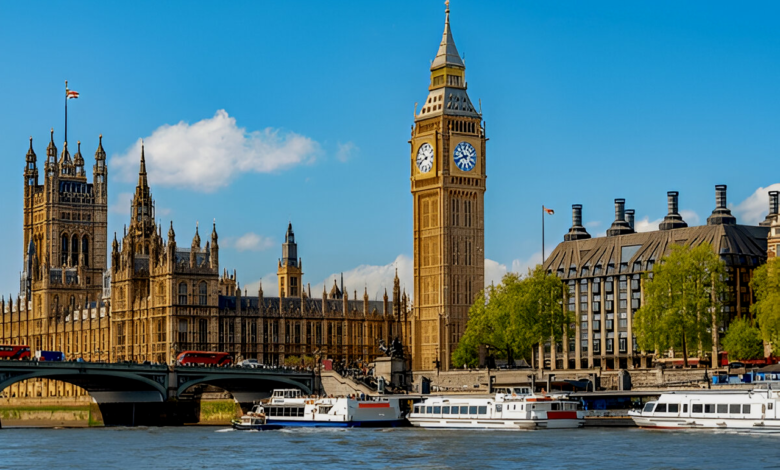
House training a puppy in the UK is a rewarding yet challenging journey that requires patience, consistency, and an understanding of your puppy’s needs. The process involves more than just teaching your furry friend where to relieve themselves—it’s about building trust, establishing routines, and adapting to the unique challenges posed by the UK’s climate, housing styles, and urban environments. Whether you live in a bustling city like London, a rural village, or a suburban home, this guide will walk you through practical strategies to ensure your puppy grows into a well-adjusted, house-trained dog.
Bringing a new puppy into your home is an exciting milestone, but it also comes with responsibilities. House training, or toilet training, is one of the first and most crucial tasks for any dog owner. In the UK, factors like frequent rain, limited outdoor space in urban areas, and the prevalence of carpeted homes can make this process trickier. Success hinges on a structured approach that combines routine, positive reinforcement, and adaptability. This guide will delve into the nuances of house training tailored to the UK context, offering actionable steps to minimize accidents and foster a clean, happy living environment for both you and your pup.
Understanding Your Puppy’s Needs
House training a puppy in the UK begins with understanding their physical and emotional needs. Puppies, especially those under 12 weeks old, have small bladders and immature digestive systems, which means they need to relieve themselves frequently—often every 30–60 minutes. This is a natural part of their development, and expecting them to hold it for long periods is unrealistic. Recognizing this limitation is crucial for setting up a successful house training routine. In the UK, where weather conditions can be unpredictable, it’s important to plan for both indoor and outdoor solutions to accommodate your puppy’s needs.
Puppies also thrive on routine and consistency. They are creatures of habit, and establishing a predictable schedule for feeding, playtime, and toilet breaks helps them learn faster. For example, puppies typically need to go outside shortly after waking up, eating, drinking, or playing. By observing your puppy’s behavior, you can identify patterns and anticipate when they’ll need a toilet break. Additionally, puppies are highly sensitive to their environment. Loud noises, unfamiliar spaces, or changes in routine can cause stress, which may lead to accidents. Understanding these factors allows you to create a calm and supportive environment that encourages successful house training.
In the UK, where many homes have carpets and limited outdoor space, managing your puppy’s needs can be particularly challenging. Urban areas, such as cities like London or Manchester, may not always have immediate access to gardens or green spaces, making indoor training solutions like puppy pads or artificial grass trays a practical option. However, the ultimate goal is to transition your puppy to outdoor elimination, which requires patience and adaptability. By understanding your puppy’s needs and tailoring your approach to the UK’s unique challenges, you can set the foundation for a well-trained and happy dog.
Creating a Consistent Routine
Consistency is the cornerstone of house training. Start by establishing fixed times for meals, play, and toilet breaks. Feed your puppy at the same times daily—this regulates their digestion and makes it easier to predict when they’ll need to go outside. Take them out first thing in the morning, after meals, and before bedtime. Use a command like “Go potty” to create a verbal cue. If you live in a flat or an area without immediate garden access, consider training your puppy to use a balcony or indoor grass patch. Always accompany them outside to reward them immediately after they eliminate, reinforcing the connection between the action and positive feedback.
Positive Reinforcement: The Power of Praise and Treats
UK dog trainers widely advocate for positive reinforcement methods. When your puppy successfully goes outside, offer enthusiastic praise, a treat, or a quick play session. Avoid punishment for accidents, as this can create anxiety and hinder progress. Instead, interrupt accidents with a gentle “Oops!” and swiftly take them to their designated toilet area. Clean indoor accidents thoroughly with enzymatic cleaners to remove odors that might attract repeat incidents.
Managing Setbacks and Common Challenges
Accidents are inevitable, especially in the early stages. Factors like changes in routine, illness, or stress (e.g., moving house) can disrupt progress. If your puppy regresses, revisit the basics: increase supervision, limit their roaming space with a playpen, and ensure you’re adhering to their schedule. In multi-pet households, separate feeding and toilet areas to avoid territorial issues. For urban dwellers, gradual exposure to noisy streets can help puppies feel comfortable eliminating outdoors.
Adapting to the UK Climate
Rainy weather is a frequent hurdle. Invest in waterproof gear for yourself and a sheltered spot for your puppy, such as a covered patio or a pop-up tent. If your puppy hesitates to go out in the rain, gradually acclimate them by taking short, positive trips outside—even if they don’t eliminate. Indoors, maintain a backup plan with puppy pads or artificial grass trays.
Advanced Tips for Long-Term Success
As your puppy matures, gradually extend the time between toilet breaks. Most dogs can hold their bladder for one hour per month of age (e.g., four months old = four hours). Crate training can be a valuable tool, as dogs naturally avoid soiling their sleeping area. Ensure the crate is cozy and never used as punishment. Socialization classes, common in UK communities, can also reinforce training by exposing your pup to distractions and building their focus.
Read More: Preventing Separation Anxiety in Pets: UK Expert Advice
Conclusion
House training a puppy in the UK demands dedication, but the effort pays off in a lifetime of good habits. By tailoring your approach to the local environment—whether that’s navigating city streets or weathering storms—you set your puppy up for success. Consistency, positivity, and adaptability are key. Celebrate small victories and remain patient during setbacks; every puppy learns at their own pace. Over time, the bond you build through this process will lay the foundation for a trusting, joyful relationship.
In the UK, where dogs are cherished family members, a well-trained puppy contributes to a harmonious home and community. Remember, house training isn’t just about avoiding mess—it’s about teaching your dog to communicate their needs and respect shared spaces. Stay committed to the routine, lean on local resources like trainers or online forums, and enjoy the journey of watching your puppy grow into a confident, well-mannered companion.
FAQs
1. How long does house training take?
Most puppies grasp the basics within 4–6 months, but consistency is key. Smaller breeds and urban puppies may take longer due to bladder size and environmental distractions.
2. What if my puppy keeps having accidents indoors?
Re-evaluate their schedule and supervision. Confine them to a smaller area and watch for signs like sniffing or circling. Clean accidents with enzymatic sprays to deter repeat incidents.
3. Should I use puppy pads or train outdoors immediately?
This depends on your lifestyle. Puppy pads are useful for flats or bad weather, but transitioning to outdoor-only elimination is ideal for long-term ease.
4. How do I handle nighttime training?
Limit water before bedtime and take your puppy out right before sleep. Set alarms for nighttime breaks, gradually spacing them out as their bladder capacity grows.
5. Can diet affect house training?
Yes. Stick to regular feeding times and avoid sudden food changes, which can upset digestion. High-quality UK-approved puppy food promotes consistent bowel movements.



